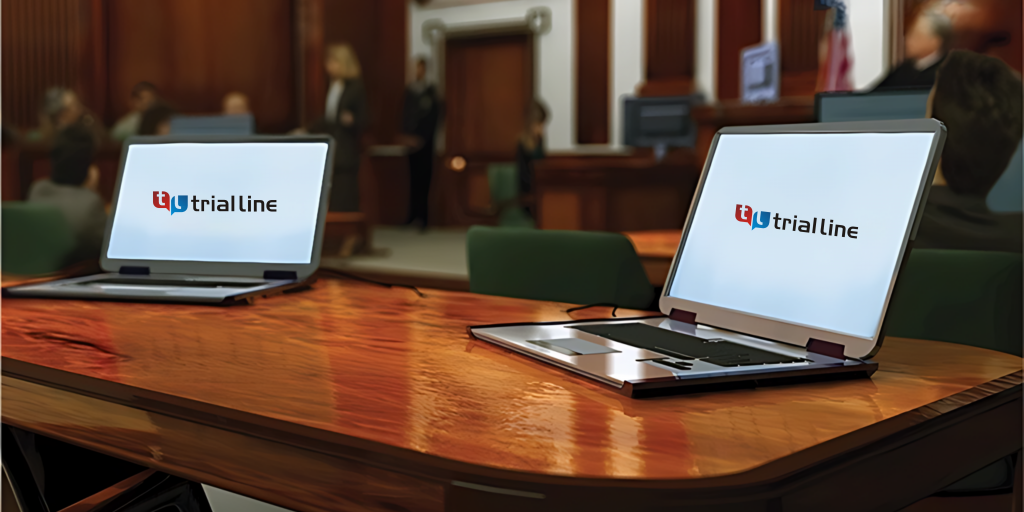How Trial Presentations Enhance Your Disagreement and Persuade Jurors
Test discussions offer as a crucial device for boosting lawful debates and encouraging jurors. The calculated usage of visuals not only clears up complex information but also records jurors' focus extra properly than words alone.

Significance of Visual Aids
Visual aids play a vital function in improving the efficiency of trial presentations, as they can considerably enhance audience engagement and retention of information. In the context of a test, where jurors are entrusted with handling complicated info, visual help offer to streamline and clear up bottom lines. Graphes, charts, and pictures can convey data and principles that might otherwise bewilder or perplex jurors, enabling a more straightforward understanding of the proof provided.
Furthermore, visual aids aid in preserving juror attention throughout the process. By breaking the monotony of spoken statement, these tools can stress vital arguments, making them extra unforgettable. Efficient aesthetic help can also stimulate emotional responses, which can be crucial in convincing jurors to straighten with the presenter's story.

Crafting Engaging Stories
A compelling story is vital in test presentations, as it offers as the backbone of efficient persuasion. It allows attorneys to weave with each other facts, evidence, and psychological elements into a systematic story that reverberates with jurors. This narrative structure makes it possible for jurors to understand the complexities of the instance while guiding them with the lawyer's debate.
To craft a compelling story, lawyers should concentrate on quality and coherence. This includes developing a clear protagonist-- typically the customer-- and detailing their journey through the events in inquiry. Presenting the truths in a rational series boosts understanding and maintains engagement. Furthermore, the usage of brilliant summaries can develop mental pictures that aid jurors envision the occasions, making the story more memorable.
In addition, incorporating essential styles throughout the presentation strengthens the core message and aids in retention - trial presentations. The story needs to not just communicate info but likewise stimulate a sense of justice, highlighting the visit homepage stakes involved. Inevitably, a sound narrative fosters a link in between the jurors and the situation, positioning the lawyer's disagreement as both qualified and engaging, consequently boosting the possibility of a favorable judgment

Involving the Jury Psychologically
Efficient court interaction depends upon the lawyer's ability to attach with jurors on an emotional degree. This connection can substantially impact jurors' assumptions and their ultimate decision-making. Making use of emotional charms enables lawyers to humanize the instance, transforming abstract lawful concepts into relatable experiences. By offering real-life stories or testimonies, lawyers can evoke empathy and concern, fostering a much deeper understanding of the issues at stake.
Visual help, such as pictures or video clips, can further improve psychological involvement, giving jurors with vivid representations of the situation's human components. Crafting a narrative that highlights the struggles and triumphs of the advice individuals included ensures that jurors see beyond the legal arguments and recognize the human repercussions of their decisions.
An attorney's passionate distribution can resonate with jurors, reinforcing their psychological financial investment in the situation. It's essential to balance emotional charms with factual proof, making certain that jurors really feel obliged to act while staying grounded in the truth.
Structuring Your Discussion

The body of the presentation must be logically segmented into bottom lines, each supported by engaging proof. It is beneficial to utilize narration strategies to weave facts into a narrative that jurors can conveniently adhere to. Visual aids, such as charts and videos, can improve understanding and engagement, helping to highlight vital items of proof.
Real-World Instance Studies
Taking a look at real-world situation studies provides very useful understandings into the art of trial discussions and persuasion. The defense team properly utilized a technique that combined top-level professional testimonies with multimedia discussions, which mesmerized jurors and ultimately affected their decision.
Another significant example is the "McDonald's Coffee Instance," where the plaintiff's attorneys made use of graphic photos of the injuries suffered by Stella Liebeck. trial presentations. This raw visual proof played a critical function in sharing the intensity of her burns, leading to a substantial jury honor. Such cases show that impactful test presentations usually rest on the reliable combination of visuals and narration to evoke psychological responses from jurors
Moreover, the "Casey Anthony Test" highlighted the significance of narrative comprehensibility and trustworthiness. The prosecution's failing to establish a compelling timeline lessened their persuasive power, highlighting the need of a well-structured presentation. Evaluating these instances reveals that successful test discussions require tactical preparation, psychological engagement, and the capability to reverberate with jurors' worths and ideas.
Conclusion
Trial discussions substantially improve disagreements and convince jurors through the strategic use of aesthetic help, compelling narratives, and psychological involvement. A well-structured discussion balances emotional allures with valid proof, inevitably reverberating with jurors' values.